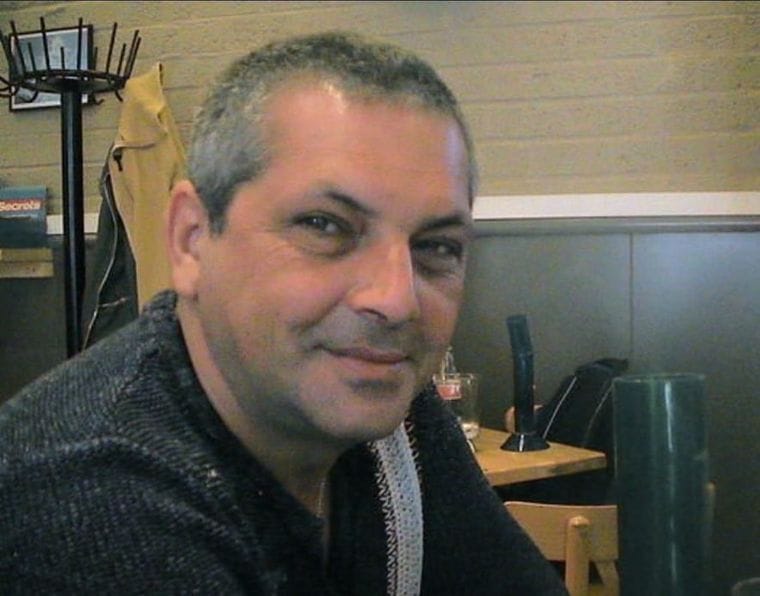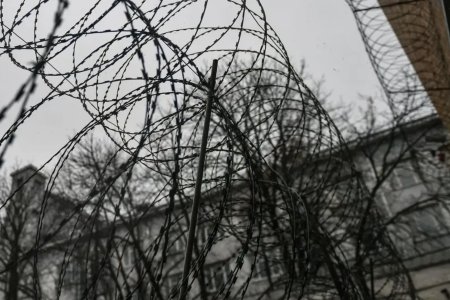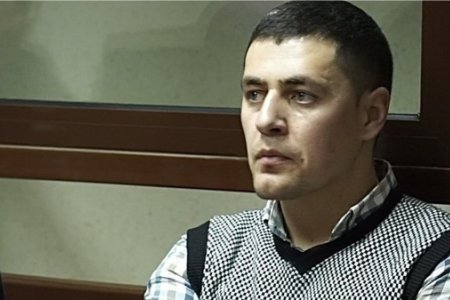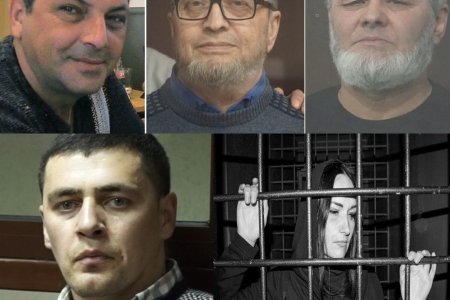
Kostiantyn Shyrinh has died in a Russian prison colony, three years after the then 60-year-old Ukrainian* was first seized in occupied Crimea and then sentenced to 12 years’ imprisonment on mystery ‘spying’ charges. There had long been warnings that Shyrinh suffered from cardiovascular disease and that Russia was placing his life in danger. It has now ended it.
The Crimean Human Rights Group, citing its own sources, reported Shyrinh’s death on 7 February 2023. He was imprisoned in Prison Colony No. 5 in Novotroitsk (Orenburg oblast), where he was sent after his appeal against the spying charges was rejected.
CHPG Director Olha Skrypnyk points out that “Kostiantyn needed medical care for heart problems but did not receive them. The failure to provide health care to our citizens in Russian prisons does not affect only isolated cases,but is systemic practice. The responsibility for his death lies with the colony’s administration. It is for this reason that it is vital to seek and apply all mechanisms to ensure the release of Ukrainian citizens who are held by Russia, since the conditions in Russian prison colonies are a real threat to their lives.”
It was clear much earlier that Shyrinh’s life was in danger. The first closed hearing in his ‘trial’ on 12 August 2021 had needed to be adjourned and an ambulance called instead. Shyrinh was known to have cardiovascular problems yet the administration of the SIZO [remand prison] in occupied Simferopol ignored his repeated pleas for medical care. They may, in fact, have punished him for them. In October, Shyrinh’s lawyer Dmitry Dinze reported that the 61-year-old had been moved several times from one cell to another, with the conditions, including cold and damp, each time even worse than in the previous cell.
Russia’s FSB [security service] claimed back on 15 April 2020 that they had “broken up the activities of the Ukrainian Defence Ministry’s Military Intelligence Department aimed at organizing and carrying out acts of sabotage – terrorism, stealing information containing state secrets and recruiting Russian citizens”. These activities, they asserted, had been organized by Lieutenant Oleh Akhmedov, the head of a department of military intelligence located in Kherson, with the arrests announced of two people: a Russian military servicewoman from Feodosia and a male Ukrainian citizen, neither of whom were named. The woman was said to have been arrested on 24 March 2020 and charged with ‘state treason’ (Article 275 of Russia’s criminal code). The reports then said that she had ‘admitted guilt’, saying that a Ukrainian citizen, her former husband, had recruited her several years after they parted and that she had passed him documents of the military unit in which she worked. Due to her underage child, she was placed under house arrest. On 19 May 2020, the Russian newspaper Kommersant named Shyrinh, stated that he had been moved to the Lefortovo prison in Moscow and that he denied the charges against him. At that stage Shyrinh was ‘represented’ only by Oleg Glushko, a ‘lawyer’ who has gained notoriety for his collaboration with the FSB, rather than proper legal assistance to his clients. Glushko told Kommersant that Shyrinh had been born in Kyiv, but had moved to occupied Crimea from Zaporizhzhia in 2015., and that he had met a woman much younger than him, who was working in a military unit in Feodosia.
On 4 June 2021, Russian media reported that a Russian servicewoman, named as Tatyana Kuzmenko, had been sentenced to eight years’ imprisonment on state treason charges, with a deferment of two years until her daughter turned 14. It is possible that Glushko’s information was inaccurate since he had earlier suggested that Shyrinh and Kuzmenko had had a child together, who would have had to be much smaller. RBC.ru noted that the ‘trial’ at the Southern District Military Court in Rostov had not just been behind closed doors (as is typical for Russia’s ‘spying’ trials), but also under ‘special procedure’. The latter is normally applied where a person is not disputing the charges. Kuzmenko’s appears to have claimed that she had gathered information about the number and location of a Feodosia anti-aircraft missile unit on Shyrinh’s instructions. Throughout the proceedings against him, Shyrinh denied all the charges and insisted that Kuzmenko had been terrorized into giving false testimony against him.
Shyrinh himself was sentenced on 14 October 2021 to 12 years in a harsh-regime prison colony. During the ‘trial’ itself, he had been represented by Dmitry Dinze, a Russian lawyer who has defended many Ukrainian political prisoners. Dinze had, however, been forced, under threat of criminal liability, to sign a non-divulgence agreement and could only confirm that his client denied all the charges and that they would be appealing against the sentence.
This appeal was rejected on 25 January 2022 by judge Yelena Kalorina from the Third Court of Appeal in Sochi. Too little information is available about the charges against Shyrinh and the secret trial to say with absolute certainty that the only ‘evidence’ against him was the testimony given by Kuzmenko. It does, nonetheless, seem likely, with trust in Russian courts not enhanced by the fact that the same ‘judge’ had already rejected appeals in the evidently fabricated cases of recognized political prisoner Ivan Yatskin and Ukrainian MP and Chairman of the Crimean Tatar Mejlis, Refat Chubarov., as well as the extremely dubious sentence against 66-year-old pensioner Halyna Dovhopola. Russia is, furthermore, violating international law by applying its legislation on occupied territory.
In November 2021, former Kremlin hostage, Oleh Sentsov published a letter from another Ukrainian political prisoner, journalist Vladislav Yesypenko. The latter mentioned four prisoners, including Shyrinh and said that the latter had been tortured with the use of electric shocks before being taken to Moscow where he was held for six months in solitary confinement. Yesypenko also reported that Shyrinh had already suffered two heart attacks, though gave no further information.
The Crimean Human Rights Group reported on 1 June 2022 that Shyrinh had arrived at the prison colony in Novotroitsk. He wrote then that his gruelling journey to the colony had lasted two months, and that all of his medication had been taken from him, as well as his machine for measuring blood pressure. He had asked his lawyer to pass on a list of the medication he required to relatives, and wrote also that he needed two operations, including one on his heart. Typically, the prison was demanding that he go through all medical tests, etc. again, before they would confirm his diagnosis, with all of this leaving him in real danger. He noted also in his letter, that his treatment, as a Ukrainian, corresponded to the current situation (by which he was clearly referring to Russia’s full-scale invasion of Ukraine). He wrote that he was not despairing and relying on his inner resources, but clearly stated that he had been deprived of virtually everything.
* The Crimean Human Rights Group’s report says he was 61 when he died.



